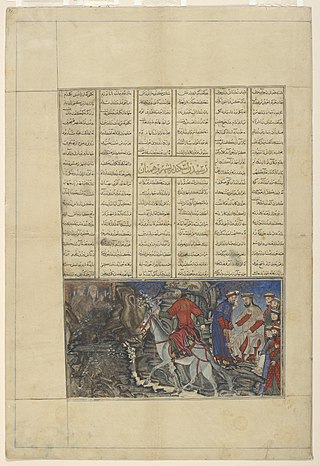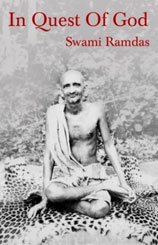Related Research Articles

Abraham was a prophet and messenger of God according to Islam, and an ancestor to the Ishmaelite Arabs and Israelites. Abraham plays a prominent role as an example of faith in Judaism, Christianity, and Islam. According to the Islamic perspective, Abraham fulfilled all the commandments and trials wherein God nurtured him throughout his lifetime. As a result of his unwavering faith in God, Abraham was promised by God to be a leader to all the nations of the world. The Qur'an extols Abraham as a model and exemplar: obedient and not an idolater. In this sense, Abraham has been described as representing "primordial man in universal surrender to the Divine Reality before its fragmentation into religions separated from each other by differences in form". Muslims believe that the Ka'aba in Mecca was built by Abraham and his son Isma'il as the first house of worship on Earth. The Islamic holy day, Eid al-Adha, is celebrated partly in commemoration of Abraham's willingness to sacrifice his son on God's command.

Gymnosophists is the name given by the Greeks to certain ancient Indian philosophers who pursued asceticism to the point of regarding food and clothing as detrimental to purity of thought. They were noted to have been vegetarian by several Greek authors. There were also gymnosophists in Upper Egypt who were called Ethiopian Gymnosophists by Apollonius of Tyana.

Ramakrishna, also called Ramakrishna Paramahansa, born RamakrishnaChattopadhay, was an Indian Hindu mystic. He was a devotee of the goddess Kali, but adhered to various religious practices from the Hindu traditions of Vaishnavism, Tantric Shaktism, and Advaita Vedanta, as well as Christianity and Islam. He advocated the essential unity of religions and proclaimed that world religions are "so many paths to reach one and the same goal". His parable-based teachings espoused the ultimate unity of diverse religions as being means to enable the realization of the same God. He is regarded by his followers as an avatar.

Élisabeth Philippe Marie Hélène of France, also known as Madame Élisabeth, was a French princess. She was the youngest child of Louis, Dauphin of France, and Duchess Maria Josepha of Saxony, and she was a sister of King Louis XVI. Élisabeth's father, the Dauphin, was the son and heir of King Louis XV and his popular wife, Queen Marie Leszczyńska. Élisabeth remained beside her brother and his family during the French Revolution, and she was executed during the Reign of Terror at the Place de la Révolution.

Onesicritus, a Greek historical writer and Cynic philosopher, who accompanied Alexander the Great on his campaigns in Asia. He claimed to have been the commander of Alexander's fleet but was actually only a helmsman; Arrian and Nearchus often criticize him for this. When he returned home, he wrote a history of Alexander's campaigns. He is frequently cited by later authors, who also criticize him for his inaccuracies.

A Christian child's prayer is Christian prayer recited primarily by children that is typically short, rhyming, or has a memorable tune. It is usually said before bedtime, to give thanks for a meal, or as a nursery rhyme. Many of these prayers are either quotes from the Bible, or set traditional texts.

Swami Ramdas (; Sanskrit: स्वामी रामदास, romanized: Svāmī Rāmadāsa, born Vittal Rao was an Indian saint, philosopher, philanthropist and pilgrim.
Matthew 11:29 is the 29th verse in the eleventh chapter of the Gospel of Matthew in the New Testament.

Topsyturveydom is a one-act operetta by W. S. Gilbert with music by Alfred Cellier. Styled "an entirely original musical extravaganza", it is based on one of Gilbert's Bab Ballads, "My Dream". It opened on 21 March 1874 at the Criterion Theatre in London and ran until 17 April, for about 25 performances. This was the first work shown at the newly built Criterion, and it was played together with An American Lady, written and performed by Gilbert's friend, the dramatist and Fun magazine founder, Henry J. Byron. The musical score to Topsyturveydom does not survive, but amateur productions in recent decades have used newly composed scores or performed the work as a non-musical play.
Jaroslav Vajda was an American hymnist.

The Scriptural Way of the Cross or Scriptural Stations of the Cross is a modern version of the ancient Christian, especially Catholic, devotion called the Stations of the Cross. This version was inaugurated on Good Friday 1991 by Pope John Paul II. The Scriptural version was not intended to invalidate the traditional version. Rather it was meant to add nuance to an understanding of the Passion.
Premanand Swami (1784–1855) was a saint of the Swaminarayan Sampradaya and one of Swaminarayan's paramhansas.
Saʽd ibn ʽUbadah ibn Dulaym Al Ansari was the chief of the Sa'ida clan of the Khazraj tribe in Medina in the early seventh century. He was later recognised as the chief of the whole Khazraj tribe, and then of all the Ansar. He was a prominent companion of the Islamic prophet Muhammad and he made an abortive attempt to nominate himself as caliph of Islam after Muhammad's death.

"Thou shalt not covet" is the most common translation of one of the Ten Commandments or Decalogue, which are widely understood as moral imperatives by legal scholars, Jewish scholars, Catholic scholars, and Protestant scholars. The Book of Exodus and the Book of Deuteronomy both describe the Ten Commandments as having been spoken by God, inscribed on two stone tablets by the finger of God, and, after Moses broke the original tablets, rewritten by God on replacements. On rewriting, the word covet changed to ‘desire’ (תתאוה).

"I am the LORD thy God" is the opening phrase of the Ten Commandments, which are widely understood as moral imperatives by ancient legal historians and Jewish and Christian biblical scholars.

Ramakrishnananda was one of the direct disciples of Ramakrishna. Known for his "Gurubhakti" [Service to the Guru], he served the Baranagore Math for 12 years without missing a single day.

Kalanos, also spelled Calanus, was an ancient Indian gymnosophist and philosopher from Taxila who accompanied Alexander the Great to Persis and later self-immolated, after falling ill, entered himself into a pyre, in front of Alexander and his army. Diodorus Siculus called him Caranus.

The relationship between Ramakrishna and Vivekananda began in November 1881, when they met at the house of Surendra Nath Mitra. Ramakrishna asked Narendranath to sing. Impressed by his singing talent, he invited him to Dakshineswar. Narendra accepted the invitation, and the meeting proved to be a turning point in the life of Narendranath. Initially Narendra did not accept Ramakrishna as his master and found him to be a "mono maniac", but eventually he became one of the closest people in his life. Ramakrishna reportedly shaped the personality of Narendranath and prepared him to dedicate his life to serve humanity. After the death of Ramakrishna, Narendra and his other monastic disciples established their first monastery at Baranagar.
The Thiruvilaiyadal Puranam is a collection of sixty-four 7th-century Shaivite devotional epic stories by the sage Paranjothi. They describe the actions of Shiva on earth in a number of disguises to test and help his devotees.

The Devil's Sooty Brother KHM 100 is a German fairy tale collected by the Brothers Grimm and published in the second edition of Kinder- und Hausmärchen in 1819. It is a tale of Aarne–Thompson type 475, "Heating Hell's Kitchen", or "The Man as Heater of Hell's Kettle".
References
- ↑ Sen, Sailendra Nath (1999). Ancient Indian History and Civilization. New Age International. p. 128. ISBN 9788122411980.
- ↑ Warner, Arthur George; Warner, Edmond (2001). The Sháhnáma of Firdausí. Psychology Press. pp. 61–62, 422, 430. ISBN 9780415245432.
- 1 2 Classica et mediaevalia , Volumes 34-35. Société danoise les études anciennes et médiévales. 1983. pp. 78, 81, 87.
- ↑ Charity Seraphina Fields (2012). Battle Against Infinity. Lieutenant of Charity. pp. 39–. ISBN 978-1-300-05921-9 . Retrieved 25 May 2016.[ permanent dead link ]
- ↑ Tristram Stuart (18 October 2012). The Bloodless Revolution: Radical Vegetarians and the Discovery of India. HarperCollins Publishers. pp. 43–. ISBN 978-0-00-740492-6 . Retrieved 25 May 2016.
- ↑ Prabudhha Bharata by Vivekannda Swami, page 30 & 386
- 1 2 3 4 Stoneman, Richard (2012). The Legends of Alexander the Great. Bloomsbury Academic. pp. 43–47. ISBN 9781848857858.
- ↑ Niehoff, Maren (2001). Philo on Jewish identity and culture. Verlag von J. C. B. Mohr (Paul Siebeck). p. 154. ISBN 9783161476112.